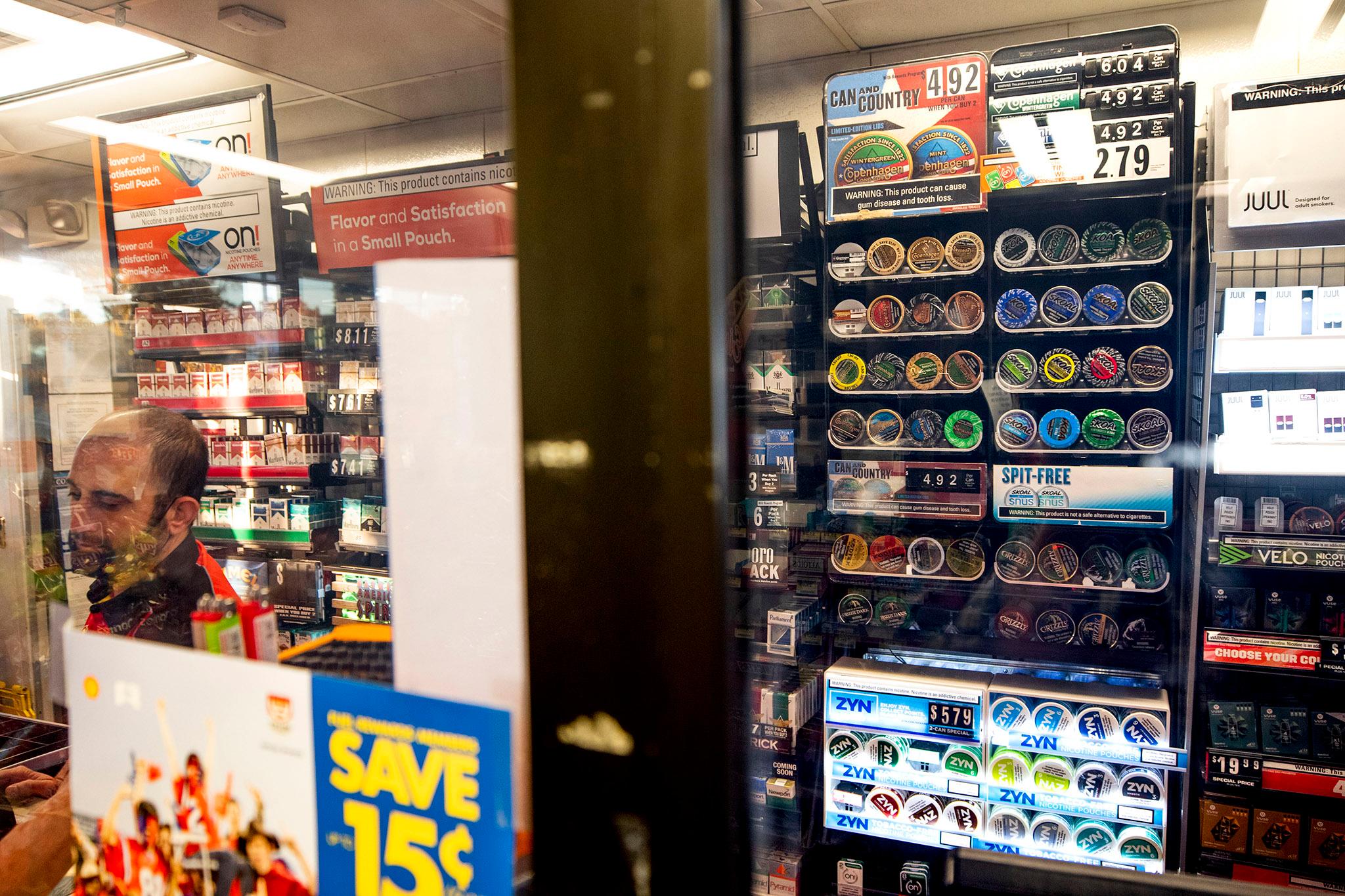This story was updated at 8:28 a.m. on June 24, 2025
Denver’s city council passed a ban on flavored tobacco last year, looking to pull the plug on products that public health groups say can lead to a lifetime of tobacco addiction.
Vape shops and the tobacco industry fired back, gathering thousands of signatures to successfully put the prohibition on the fall ballot.
Now, campaign filings with the Denver Clerk and Recorder’s Office show the repeal effort has so far raised nearly $285,000. That is about ten times the roughly $28,000 raised by a coalition of anti-tobacco, health and education groups that back the ban.
“It's amazing how much support we've gotten from the business community in Denver,” plus others like soccer moms and minority-owned businesses, said Phil Guerin, who owns Myxed Up Creations, on Colfax Ave. “It's not just our industry.”
But the contributions given so far mostly come from their industry, according to the filings.
Opponents of the ban have organized under the name of Citizen Power! A group of vape shop owners, the Rocky Mountain Smoke Free Alliance, gave more than $171,000. The chain Smoker Friendly contributed about $16,000. Other vape shops and shop owners have also given thousands of dollars
Philip Morris International, the multinational tobacco company, wrote a check for $75,000 to Citizen Power! in February, as ban opponents worked to gather signatures for the petition to put the measure on the ballot.
“So while we have gotten a little bit of support from Philip Morris, that's still kind of just a fraction of the support overall that we've received,” Guerin said, noting a lot of the money raised so far was spent on signature gathering and verification.
“It should come as no surprise that we support adult Denverites who smoke having access to FDA authorized, smoke-free alternatives that are a better option than cigarettes—the most harmful form of nicotine consumption,” said PMI spokesman Matthew Sheaff.
Last summer, the company announced it planned to build a new manufacturing plant in Aurora to produce Swedish Match Zyn nicotine pouches, one of the fastest-growing nicotine products in the U.S. It’s a smokeless nicotine pouch that users place between their lips and gums.
Most of the money for the side that wants to keep the ban, united under the name Denver Kids vs Big Tobacco, nearly $23,000, has come from the Tobacco-Free Kids Action Fund. Brown Strategy, a digital campaign ad group, gave $5,000.
Guerin said he expects to raise another $300,000 and for ban supporters to ultimately outspend his side substantially.
“This is David versus Goliath, and we're David,” he said. “At the end of the day, they're going to collect 10 times more money than we do. And they're confident about that.”
Guerin said his side wants to get the word out to Denverites to vote no and protect the rights of adults to consume flavor tobacco.
“That this is a better alternative and should be regulated for responsible adults, that bans don't work, that this does nothing to protect children,” he said.
Ban supporters say they want to head off confusion about measure
Both sides say they expect an expensive and sharply contested fight, with voters seeing both grassroots campaigning and ads via mailers, traditional print and broadcast media and digital outlets.
The campaign will likely gear up in August and September, predicted Jodi Radke, regional director with the Campaign for Tobacco Free Kids.
The election is happening in an off-year, which typically means smaller voter turnout. Radke said she was less worried about the impact of that than potential confusion from voters about the ballot language and what they’re voting for or against.
“I'm not concerned about an off-year election and the voter turnout. I'm more concerned, I think about voter confusion,” said Radke. “If voters support keeping the ordinance in place that ends the sale of flavored tobacco in the city, voters will need to vote yes.”
Radke said similar repeal efforts have happened elsewhere, like California and that ban backers have prevailed.
The name of their group, Denver Kids v Big Tobacco, will mirror the nature of the campaign, said Radke, something Guerin and those who want to repeal the ban sharply dispute.
She said their message will be that the tobacco industry knows “that 95 percent of adults start before the age of 21. They need kids to want to experiment and initiate with these products at an early age, 12, 13, 14. If they can't do that, they do not create their pipeline for profit as lifelong users die from preventable chronic disease and death.”
Guerin said the “no” side will prove much more broad than just vape shops and convenience stores. He added that many Denver residents are worried the city is spending too much money and will miss the more than $10 million in a variety of taxes these businesses bring in annually.
“We're going to have a lot more support from the business community, public support from the business community,” he said.













